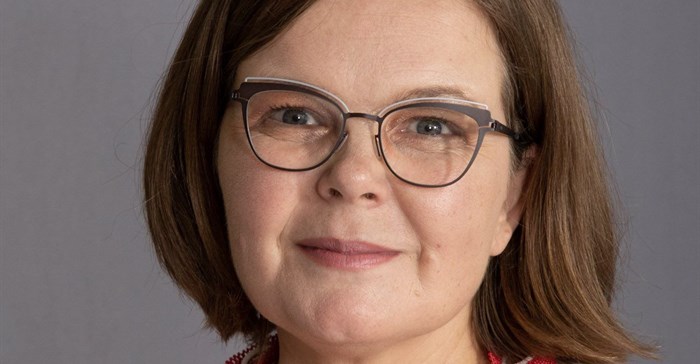
Subscribe & Follow
#AfricaMonth
Jobs
- External Sales Representative - Exports Vereeniging
In the news

#WomensMonth: Women affected by mining beyond the workplace

These include the position of women in stakeholder groups like local communities and suppliers, for instance, where mines can still improve their contribution to inclusive development. This might express itself in the mine’s social engagement processes – where traditional community structures are often male dominated.
Being aware of gender dynamics not only in the workplace but among important stakeholder groups will enable mines to raise the bar on managing impacts on women. It is important to make more space for women’s voices and input in mine decisions ranging from corporate social investment and procurement, to resettlement and environmental permitting.
There is a growing appreciation of the fact that women in mine-host communities are often impacted differently by the presence of a mining operation.While many women are engaged formally or informally in the mine’s supply chain, their contribution is seldom mainstreamed in company policies or even national mining regulations.
This has led to calls by organisations like the Intergovernmental Forum on Mining, Minerals, Metals and Sustainable Development for clear standards for stakeholder consultation in licencing processes, for example. Such clarity would emphasise the need for mines to consult equally with men and women in host communities.
Systemic vulnerability
This was particularly important in the context of communities dealing with contributing factors to systemic vulnerability like poverty, illiteracy and women’s lack of access to education. Mines and their service providers would then have to take more meaningful measures to ensure women fully understand the scope of the project, what is being proposed, and potential consequences.
Equally important, an ongoing and effective gender strategy would allow mines to identify opportunities for interventions. The ways that this could be done include the mine’s CSI function – to support community-based initiatives against gender-based violence faced by women in local communities, making special provision to log grievances in a safe and protected manner – and through procurement playing a more active role in empowering women suppliers in the local area.
The inclusion of more women in the workforce remains an important element of enhancing mines’ positive impact. However, employment equity is not about numbers on their own. Women working in mining companies will add value when they participate more fully in daily decision making.
The insights that women bring can be leveraged in improving the mine’s broader impact among stakeholders, helping guide the company’s engagement, recruitment and procurement strategies to best effect. Numerous studies have shown that expenditure by women heading poor households has a more positive spin-off in terms of family welfare and education.
Regular assessment
As with any development effort, it is important for the mining sector’s impact on female stakeholders to be assessed regularly. This can be done by integrating gender into the impact assessment process, and reporting gender disaggregated data.
Gender-sensitive monitoring can help understand how the changes that mining brings to a community often affect men and women differently. Women may not benefit directly from the financial gains of resettlement processes, for instance, if their ownership of certain assets is culturally or legally prescribed. At the same time, certain types of social change associated with mining such as site-induced migration, may raise the risk of gender-based violence.
A broader focus on women’s participation in mining can ensure that mining’s impact does not exacerbate gender inequality and discrimination. Rather, it needs to support women in sharing the benefits and opportunities the sector can offer.
About Lisl Pullinger,
Lisl Pullinger is the principal ESG consultant at SRK Consulting, has over 20 years' experience working on stakeholder communication and community development projects. Her experience in working with host community and mining executives places her in a unique position to provide advisory services regarding sustainability and environmental, social and governance (ESG) performance. Lisl's experience included a wide range of sustainable development management areas - developing in-migration management plans, leading due diligence teams and developing digital stakeholder engagement plans. Lisl has worked extensively in the African mining environment and has a thorough understanding of how social license to operate can influence operations and projects. She has deep insight into sustainability requirements across disciplines and how it collates into developing and maintaining sustainable frameworks for projects and operations. She recently worked on sustainable development projects in the SADC-region, Namibia, Zimbabwe and Mozambique and is currently supporting the European Union's ReSourcing project with advisory services on responsible sourcing. Pullinger is passionate about creating shared value between communities and mines through local procurement and enterprise and supplier development. She is a member of two technical societies.Related
How Spar is using localised marketing to redefine the urban retail experience 9 May 2025 #BizTrends2025: Break free from brain rot, enshittification, move from digital sameness and embrace culture movements 31 Mar 2025 #BizTrends2025: Special Effects Media’s Kelly Kaimowitz - Creating a lasting impact through influencer marketing 3 Feb 2025 Icasa opens applications for 2024 community sound broadcasting licences 13 Dec 2024 The causes making a difference in SA 4 Jun 2024 4 emerging megatrends opportunities make SA CEOs cautiously optimistic 6 May 2024










